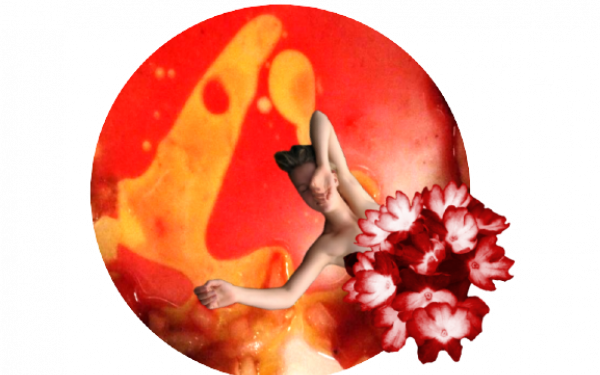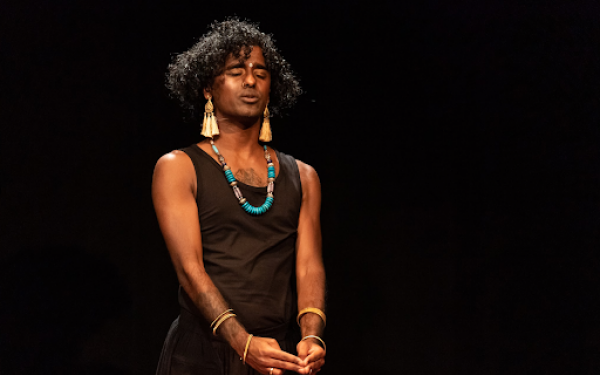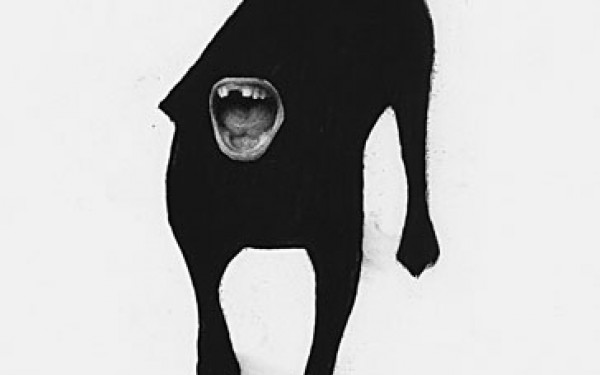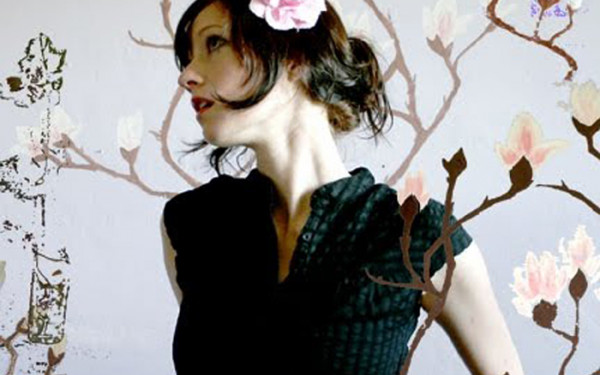Poetry That Has Punch
Concordia Alum Greg Santos Challenges Poetic Traditions in Latest Published Collection
Montreal-based poet and former Concordia student Greg Santos is releasing his second collection of poems, Rabbit Punch, challenging the conventions of poetry with a humorous twist.
From whimsical atmospheres created around popular figures such as Paris Hilton and Stephen Harper, to darker introspective pieces, Rabbit Punch blends a vast array of poetic genres.
His poem “Smash,” for instance, is written from the point of view of The Incredible Hulk working in an office job and dealing with the issues of everyday life.
“I find it interesting to make these strange juxtapositions, to incorporate ideas that are not necessarily always recognized as being poetic,” Santos said.
“I like to make people laugh because it’s strange but also have them seriously discuss something within the poetic framework.”
Inspired by great figures such as Federico García Lorca, René Magritte and Salvador Dalí, Rabbit Punch looks at the elaboration of the thought process. In Santos’s view, the making of a poem is just as important, if not more important, than the finished product.
Interested in the style and the workings of the subconscious, Santos builds somewhat of a surrealist aesthetic in experimenting with the poetic form and the landscape of popular culture.
“I capture the thought process of my own head. I enjoy writing and I’m playing with that, it’s still an experiment for me,” he said. “I’m playing with what poetry means to me in 2014 and what a poem can be.”
In that sense, the poems in Rabbit Punch have a contemporary. They challenge the traditional seriousness and reverence that are often associated with this medium.
Santos plays with popular culture in his writing, not because he wishes to shine a negative light on it, but because he enjoys it.
His poetry can be appreciated by a public new to poetry that can recognize the characters that are part of their cultural landscape.
“I was the night light in the darkness of poetry,” Santos joked.
In an attempt to make people rethink poetry, Santos reflects on what it means to be a man writing poetry in the 21st century. Many of the characters mentioned in Rabbit Punch are representations of “uber” masculinity. Evoking these characters that are seen as very masculine or chauvinistic in a poetic context creates a different perspective in the public eye, adding a layer that might not have otherwise existed.
Following that line, the name Rabbit Punch makes a reference to a deadly boxing move which relates to this theme of hyper-masculinity, as well as a word play on the publishing house’s motto “DC Books, punchy poetry.”
“I like the idea that the poems go to the reader quickly because they’re not long poems. You read them quickly but they pack a punch. They challenge what you think is poetry, or they make you laugh or they hit you in the gut,” said Santos.
However, Santos does not limit himself to humour. Playing with different tones, he goes back and forth between light and dark.
The poem “Mean Boys” is a reflection on the shootings that occurred at Virginia Tech in 2007 and the Boston Marathon bombings of 2013.
He deals with the issues in a sensitive way, exploring the feelings that emerge from such events rather than referencing certain people in particular.
With a background in music and theatre, Santos was first introduced to poetry in high school. He entered the creative writing undergraduate program at Concordia as he was still trying to figure out where his experiments and taste for writing would lead him.
After taking his first poetry workshop at the university, Santos fell in love with the medium and says he has never looked back on his choice.
“I remember thinking that I needed to focus on one thing, and it was poetry that captured my imagination the most,” said Santos.
Inspired by his encounters with poetry teachers and writers, Santos decided to dedicate Rabbit Punch to someone he very much admired—Paul Violi, who was a professor at Columbia University and The New School in New York, both universities at which Santos pursued graduate studies.
“Paul Violi was a big influence on me, he was very funny and very intelligent. He would always be quoting classic poets and New School ones,” Santos said.
“A lot of the poems in Rabbit Punch were ones that I had shown to him and that we had talked about. After he passed away and when I was making the book, I had him in mind,” he added.

_657_1050_90.jpg)
_600_832_s.png)




